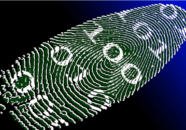
Designation of Unique ICD-10 Code for Angelman Syndrome
Availability of Dedicated Code Will Advance Research and Development of Treatments for this Unique, Well-defined Syndrome and Lead to Improved Clinical Care
Nashville, TN, June 19, 2018 — The Angelman Biomarkers and Outcome Measures (A-BOM) Alliance today announced that the National Center for Health Statistics has designated a specific ICD-10 code for Angelman syndrome, a neurodevelopmental disorder caused by genetic mutations. The designation of the ICD-10 code resulted from a combined effort of the A-BOM Alliance, leaders in the biopharmaceutical industry, family physicians, specialists, pharmacists and other health professionals. The new ICD-10 code (Q93.51) will take effect on October 1, 2018.
Until now, Angelman syndrome was included in the ICD-10 code Q93.5, which contains a large group of disorders with different genetic causes and different treatment strategies and is not specific to Angelman syndrome. The dedicated ICD-10 code for Angelman syndrome will make it easier for the field to conduct epidemiologic research and retrospective studies, determine true prevalence and morbidity and mortality rates, recruit patients for clinical trials, track outcomes of clinical interventions, and develop protocols for standard of care.
“We are grateful to everyone who joined with A-BOM to make the new ICD-10 code a reality, including the clinicians who contributed their expertise, and the companies and foundations that provided funding and letters of support,” said Terry Jo V. Bichell, MPH, Ph.D., director and scientific officer of the A-BOM Alliance. “The designation of a unique ICD-10 code for Angelman syndrome is a significant development that will lead to improved clinical care for patients with this disorder. What a difference one number will make!”
The ICD-10 is the 10th revision of the International Statistical Classification of Diseases and Related Health Problems (ICD), a medical classification list from the World Health Organization (WHO). ICD-10 codes are used to document an individual’s medical condition for epidemiology, research, health insurance billing and reimbursement, and administration. The United States uses the ICD-10-CM, a Clinical Modification of the WHO standard, while Europe and other parts of the world use the ICD-10.
“Ovid would like to congratulate everyone involved in the successful effort to designate a unique ICD-10 code for Angelman syndrome,” said Jeremy Levin, DPhil, MB, BChir, chairman and chief executive officer of Ovid Therapeutics. “This is an important development for the field and we were pleased to lend our support. With clinical trials of investigational therapeutics under way, a dedicated ICD-10 code will help healthcare professionals better understand the impact of the illness, track outcomes of clinical interventions, and fully identify the patient population that could benefit.”
About Angelman Syndrome
Angelman syndrome is a genetic disorder that is characterized by delayed development, intellectual disability, severe speech impairment, problems with movement and balance, seizures, sleep disorders and anxiety. The most common cause of Angelman syndrome is the disruption of a gene that codes for ubiquitin protein ligase E3A (UBE3A). Angelman syndrome affects approximately 1 in 15,000 people in the U.S. There are currently no U.S. Food and Drug Administration (FDA)-approved
therapies for the treatment of Angelman syndrome. Angelman syndrome is associated with a reduction in tonic inhibition, a function of the delta (δ)-selective GABAA receptor that allows a human brain to decipher excitatory and inhibitory neurological signals correctly without being overloaded. If tonic inhibition is reduced, the brain becomes inundated with signals and loses the ability to separate background noise from critical information.
About the A-BOM Alliance
The Angelman Biomarkers and Outcome Measures (A-BOM) alliance was formed by the Foundation for Angelman Syndrome Therapeutics and the Angelman Syndrome Foundation, together with researchers, clinicians and pharmaceutical corporations to help move new treatments to the clinical trial phase. There are many medications and treatments for Angelman syndrome that are coming close to being ready for clinical trials. The field as a whole needs rigorous ways to measure whether these treatments can improve the quality of life for patients and families. Our alliance members work together to share data, research, trial design and stories to help people with Angelman syndrome.

